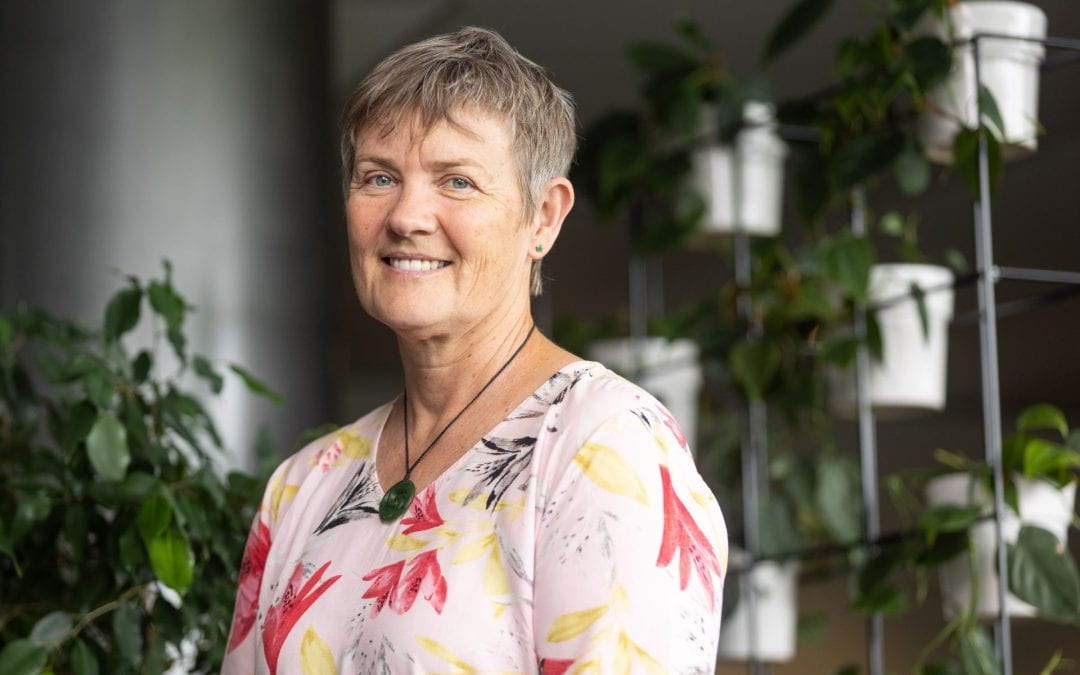Early days
“I was a classic nerdy student and always found school interesting and fun. I had really good English and Maths teachers at high school in Pukekohe and when I came to university, I did Politics and Economics. I really enjoyed Economics because to me it’s a mix of English and Maths; I did my masters in Economics as well.
“I arrived home from school after my first day, aged five, and told my Mum and Dad I was going to be a teacher. I’ve always liked learning and reading.
“The Māori word for teacher is ‘kaiako’, but ‘ako’ means to teach and to learn. There’s no distinction: so I understand a kaiako as someone who practices learning and helps others practice learning. I find that way of thinking about what learning is really speaks to my own pedagogical practise.
Entrepreneurial interests emerge
“After university I went to London to do the classic ‘OE’ and stayed there for about five years. I worked as a research manager for an entrepreneurial start-up that was looking at analysing property investments. I really enjoyed working for a business that was growing and looking at where it might be within that property investment space, and also using technology to enable that.
“After London, I went to Malawi for a couple of years and worked in another entrepreneurial space. In the undergraduate class I taught in recently, INNOVENT 310: Women and Entrepreneurship, a group of students worked on a project with Women Together Global, and the idea is to return to Malawi with a group of students and work on some projects there.
When I got my PhD in 2002, my Mum said, ‘Everybody’s talking about entrepreneurship –that must be really good for you, darling.’ And I said ‘Yes, it is.’ It is – and it has continued to be.
“Along with my experiences in London and Malawi, a conversation with my previous masters supervisor in Economics, Professor Tony Endres led me to explore entrepreneurship in the field of Economics.
“In 2000 I became involved with The Icehouse: they needed a team of academics to develop the owner-manager programme. The learning space there was a wonderful opportunity for me to understand more about business. At the same time, I started teaching entrepreneurship here at the undergraduate level.
Aotearoa Centre for Enterprising Women
“I really enjoy the research side of things. Translating research to enable others to have frameworks at their disposal is like offering a toolbox. In that toolbox there are frameworks and ways of thinking because you never know what’s going to be required for the problem or the opportunity that you’re facing.
“The Aotearoa Centre for Enterprising Women fits around that idea of good research that can be translated and has policy and practical implications. I think we’ve got some good runs on the board with the Centre – especially considering how new it is. I have a lot of respect for our funder Theresa Gattung – what she has done and is doing – and I thoroughly enjoy working with her. Theresa was CEO of Telecom and was one of those women who was ahead of her time. She is encouraging and supportive in bringing other women through.
“I also enjoy engaging with people and paying it forward. That was the theme of my talk at Raising the Bar – ‘Removing the Bar: Allyship mentoring and paying it forward’. It speaks to how I’m in this position, why this position is here and what I’m doing going forward.
“I’m firmly grounded in what we’re doing in Aotearoa, and I believe that what the University of Auckland is doing in the entrepreneurial ecosystem is really important.”
The Aotearoa Centre for Enterprising Women recently won the bid to host the Diana International Research Conference and Impact Day, which will take place in Auckland in 2025.
Watch Professor Chris Woods’ Inaugural Lecture





Recent Comments